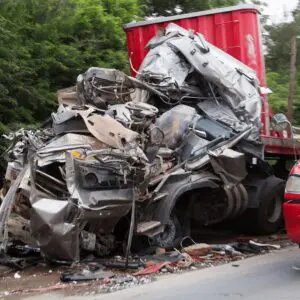How evidence from a truck tells the story
In strong cases, data meets common sense. These pieces often make the difference:
- Electronic logging device data showing hours on duty and possible fatigue
- Dashcam video capturing following distance or lane changes
- Pre-trip inspection reports that mention brake or tire issues
- Bills of lading and weight tickets that reveal overloads or shifting cargo
- Cell phone records if distraction is suspected
Carriers push back on handing over sensitive records. Early preservation notices and targeted requests can secure what matters. Timing is key, because some systems overwrite data within weeks.
Timelines that catch many people off guard
Pennsylvania’s standard statute of limitations for injury claims is two years from the crash date. Evidence requests and expert review take time. The sooner a case file opens, the better the chance to inspect the truck, interview witnesses, and work with accident reconstruction experts if needed. If a government vehicle is involved, shorter notice rules may apply. Calendar the dates. Simple scheduling avoids last-minute stress.
Common injuries after a truck crash
Neck and back injuries dominate, from herniated discs to muscle strains. Shoulder tears show up with seatbelt trauma. Head injuries range from mild concussion to more serious brain trauma. Lower extremity fractures occur with intrusion in the footwell during a high-impact front-end hit. Pain that lingers beyond six weeks deserves imaging and a specialist check. Gaps in care invite arguments that a person got better, so keep treatment steady if symptoms persist.
Settlement talk: what usually drives value
Liability strength, injury severity, and the impact on daily life drive settlement ranges. A clear rear-end by a tractor-trailer with ELD proof of fatigue carries weight. So does surgery or documented loss of strength with a clear medical link to the crash. Juries in Luzerne County pay attention to honesty, work history, and how injuries changed someone’s routine, from walking Public Square to lifting a child. Overstating harms can backfire. Accurate, consistent reporting builds trust.

